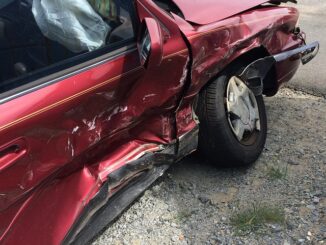
The aftermath of a car accident in Ontario can be stressful and confusing. One of the first questions you’ll likely ask yourself is, “Do I need to report the accident?” Understanding the reporting requirements in Ontario allows you to navigate the situation effectively and avoid potential legal or insurance complications. This guide will clarify when you must report a car accident, the different reporting options available, and resources to help you make informed decisions.
When Reporting a Car Accident is Mandatory in Ontario
The law in Ontario mandates reporting specific types of car accidents. Here are the key scenarios requiring you to file a report:
- Injuries: If anyone involved in the accident sustains injuries, regardless of severity, you must report the collision. Call 911 immediately to activate emergency services and file a police report.
- Significant Damage: If the estimated total damage to all vehicles involved in the accident exceeds $2,000, you are required to report it. This applies even if there are no injuries.
- Suspected Criminal Activity: If you suspect the accident resulted from criminal activity, such as driving under the influence or a hit-and-run incident, report it to the police immediately.
- Government Vehicles or Property: Any collision involving a government vehicle or property damage to public infrastructure must be reported to the police.
- Uninsured Drivers: If you’re involved in an accident with an uninsured driver, it’s crucial to report it to the police to facilitate further investigation and potential claims processes.
What Happens if I Don’t Report a Mandatory Accident?
Failing to report a mandatory accident in Ontario can have significant consequences. These may include:
- Traffic Tickets: You could receive a fine for failing to report the accident.
- Insurance Issues: Your insurance company may deny your claim or raise your premiums if you fail to report a mandatory accident.
- Legal Issues: In severe cases, you may face legal repercussions for failing to fulfill your legal obligations as a driver.
Reporting Options for Non-Mandatory Accidents
If your accident doesn’t meet the criteria for mandatory reporting (no injuries, damage under $2,000), you still have options:
- Collision Reporting Centre (CRC): Many municipalities in Ontario have Collision Reporting Centres (CRCs). These are facilities staffed by trained personnel who can assist you in filing a report on minor accidents. Important: Not all regions have CRCs, so check with your local police service to confirm availability and operating hours.
- Direct Insurance Reporting: You can directly report the accident to your insurance company. They will guide you through their claims process and handle contacting the other driver’s insurance company.
Additional Considerations When Deciding Whether to Report an Accident
Even if your accident doesn’t meet the mandatory reporting criteria, here are some situations where filing a report might be beneficial:
- Evidence for Future Claims: An official accident report can serve as valuable evidence if you discover hidden damage or experience delayed injuries.
- Peace of Mind: Reporting the accident creates a documented record, providing peace of mind and potentially simplifying future claims processes.
Resources for Reporting Car Accidents in Ontario
- Ontario Ministry of Transportation: https://www.ontario.ca/page/ministry-transportation
- Financial Services Commission of Ontario: https://www.fsrao.ca/
- Find a Collision Reporting Centre (by region): Use a search engine to find your local police service’s website and check for information on CRCs.
Remember: When in doubt, it’s always better to report the accident. This protects your legal rights, aids with insurance claims, and creates a documented record of the event. By understanding your reporting obligations and exploring your options, you can navigate the aftermath of a car accident in Ontario with greater confidence.



